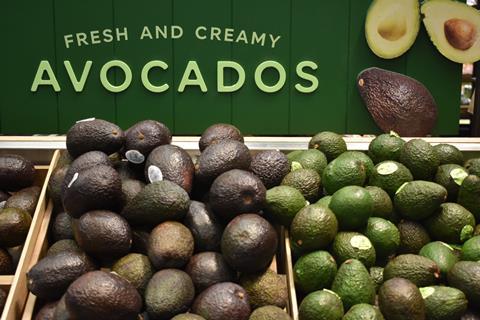World Avocado Organization chairman Zac Bard defends fruit as ‘environmentally responsible’ after reports suggest Wimbledon has replaced avocados with British peas in all dishes

Rumours of an all-out ban on avocados at the Wimbledon championships appear to be wide of the mark, after the All England Tennis Club said the fruit continued to be present in a number of products consumed on site.
According to Reuters, organisers said there was no official ban, leaving spectators to keep calm and carry on eating the product.
Concerns were raised earlier in the week after various newspapers suggested all of the avocados in dishes served at Wimbledon had been replaced with crushed British peas.
In response, Zac Bard, chairman of the World Avocado Organization, said: “[Avocados are] one of the most nutrient-dense and environmentally responsible fruits available today. Misconceptions can have non-desired impacts and affect small farmers who rely on growing avocados to make a living.”
He added: “Avocados are too often made a scapegoat in the conversation around food sustainability. We must look at the full picture: from how they’re grown to how they’re transported, avocados are one of the more environmentally responsible choices in today’s global food system. They’re a smart, sustainable, and health-forward choice.”
In March, leading UK avocado supplier Worldwide Fruit hit back at celebrity gardener and regular Wimbledon attendee Alan Titchmarsh, after he urged the public to boycott the fruit.
And over the past few years, a number of high-profile chefs and restaurants – among them Wahaca founder and former Chilean avocado ambassador Thomasina Myers – have ditched the product in favour of alternative, more local ingredients.
As a result, avocados have come under fire in the mainstream media as a result of a perceived higher environmental impact, something the WAO refutes.
“As avocados are produced from large trees, those trees play a crucial role in carbon sequestration by capturing and storing CO2. A mature tree can absorb approximately 22kg of CO2 per year,” the organisation stated.
“With similar or even lower water usage compared to other fruit crops, minimal pesticide exposure and environmentally friendly farming practices, avocados provide a sustainable and nutritious choice for consumers.”








